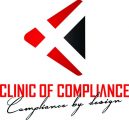Whistleblowing Mechanisms
Design, implementation and management of whistleblowing schemes
According to statistics, most irregularities in the organization are revealed by reporting by whistleblowers.
The whistleblowing scheme is an essential component of any Compliance Management System. Its major importance is evidenced by the adoption of Directive (EU) 2019/1937 of the European Parliament and of the Council of 23 October 2019 on the protection of persons who report breaches of Union law.

Legal benefits for the organization:
- repressive function - protection of organizations and employees from the negative consequences of irregularities
- preventive function - a deterrent effect that reduces the number of irregularities
- the ability to detect threats at an early stage, internally, which will avoid external reports (media, state authorities) that expose the organization to reputational damages
- use of compliance defense mechanism, which will allow collective entity to reduce or even refuse its liability under the condition, that the entity is provided with proper compliance procedures aiming at counteracting and detecting violations
Social benefits for the organization:
- strengthening the trust and awareness of employees, as well as the organization's credibility in the market
- strengthening the organisational culture
- elimination from the organization of people perpetrating abuses and irregularities, which put both the organization itself and its employees at risk of harm
- strengthening the loyalty and motivation of employees by providing them with the comfort of informing an independent Compliance Expert about irregularities without fear of possible negative consequences (retaliatory measures)
Security and confidentiality of reports
Conducting comprehensive internal investigations and exploratory talks
Recommendations on corrective measures
Proper documentation and reporting in the scope of whistleblowing scheme
